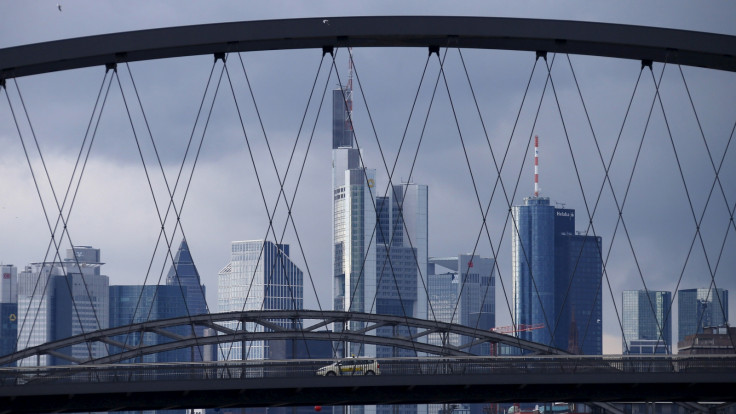Brexit: Paris and Frankfurt tout for London business amid uncertainty over Britain's future in the EU
Paris took out an advert in the Financial Times urging businesses to consider the French capital.
On Monday 27 June, a banner advert appeared above the masthead of the Financial Times telling banks and business concerned about financial meltdown after Britain voted to leave the European Union that they would find a warm welcome in Paris. A mere four days after the Brexit poll, the vultures were circling.
In the run-up to the referendum, much was made of the financial services companies, banks and businesses fleeing London for hubs such as Paris and Frankfurt – indeed, European competitors to the British capital have been feted for some time. In 2012, KPMG moved its European headquarters and more than 2,000 jobs from London to Frankfurt. PwC warned in the run-up to the 23 June poll that 100,000 jobs were at risk in London if Britain voted Leave.
There have already been rumours that HSBC is looking at moving 1,000 staff from London to Paris should Britain leave the European single market and while Morgan Stanley, which lobbied for a Remain vote, last week denied that it had begun the process of moving 2,000 London staff to Frankfurt or Dublin, the bank has said that contingency plans were under way should Britain leave the single market.
Goldman Sachs broke ground last year on a £350m ($466m) headquarters in central London, but is also understood to be scouting European locations, while French bank Societe General is set to lease eight floors of a new high-rise at Canary Wharf – a deal that it told IBTimesUK was ongoing. Other major banks, including RBS and Lloyds, have declined to comment on their European strategy should Britain leave the European Economic Area (EEA).

Despite multiple emails and calls to Paris Region, the government organisation that is promoting the French capital, IBtimesUK was unable to secure comment on the benefits that will be offered to firms moving from London to Paris, but a YouTube video realised by the organisation touted the city as a tech and tourism hub that is home to 35% of French executives.
Mark Boleat, chairman of the policy and resources committee at the City of London, told IBTimesUK that the city was hoping that even with the Brexit decision, Britain would remain in the single market. He said that the banks and financial companies that he had spoken to were letting the dust settle. "I think the one thing we have learned is that every business is in a different position. Every bank is in a different position," he said.
But Boleat is confident that while other finance centres would like to swoop on business that may be looking to leave London, Paris and Frankfurt may struggle to compete even after Brexit. France's "anti-business attitude" acts as a deterrent to financial companies and banks, with strict regulations on employment and tax rates of as much as 50% on high earners.
Frankfurt [...] has already got a significant financial business but it is small.
"Their employment laws are such that it makes it a huge deterrent to employing anybody [and] their personal tax rates are excessively high. [Paris] doesn't have the pool of talent that is needed – partly because they are all in London. They could have it but [they don't] because it is so business unfriendly," he said.
As for Frankfurt, its major issue is its size. The German finance hub has a population of just under 700,000, not much more than the 560,000 people who work in the City of London and Canary Wharf alone. The city is home to the European Central Bank and is a successful transport hub that is growing every year, but like Paris and other centres such as Luxembourg and Dublin, it has a distinct skills shortage when compared to the UK.
"Frankfurt [...] has already got a significant financial business but it is small. Luxembourg is a significant financial centre, but it is a small country and Ireland is the same. This notion of upping sticks and going somewhere else, it is not a question of moving people – the jobs are moved, the people as a whole don't. You might lose some senior people," Boleat said.
© Copyright IBTimes 2025. All rights reserved.






















